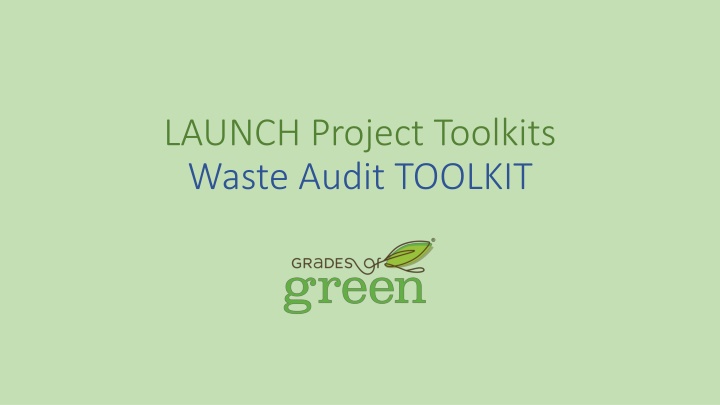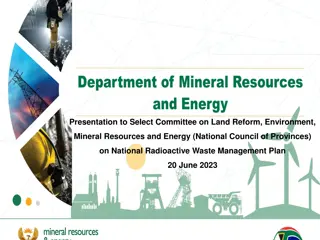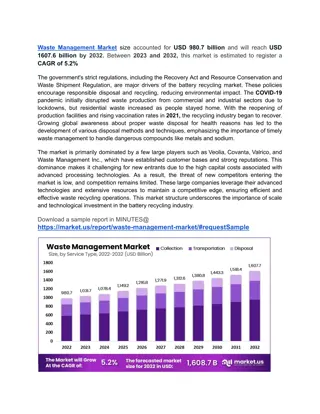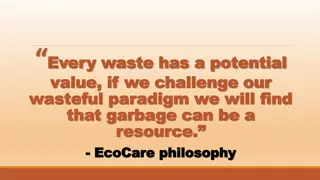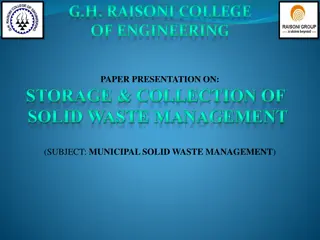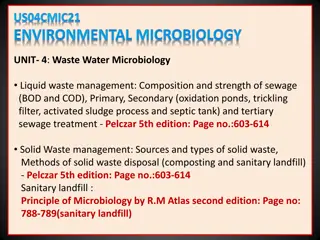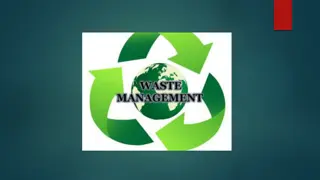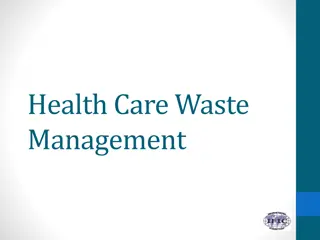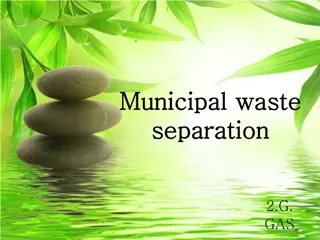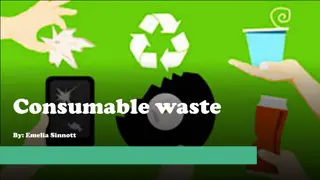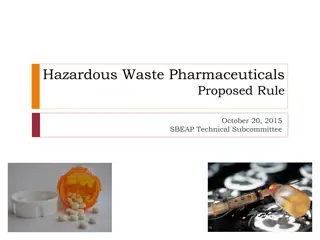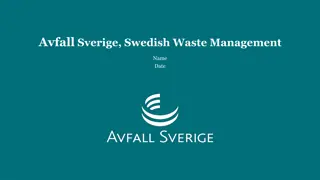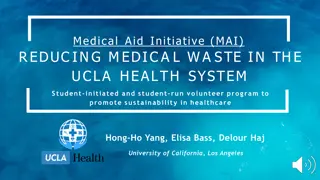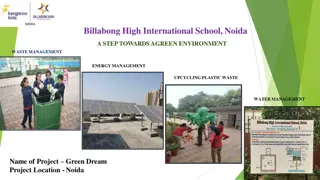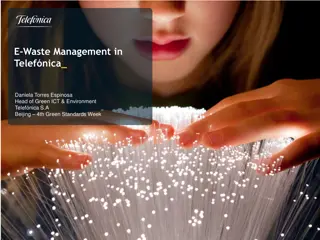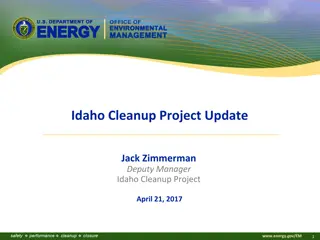Reducing Waste: A Vital Initiative for a Greener Future
Reducing waste is crucial for minimizing environmental impact, conserving resources, and combating climate change. Learn about the harmful effects of excess trash in landfills and wasted food on the environment, including greenhouse gas emissions. Discover practical solutions to reduce waste generation and promote sustainability in daily practices.
Download Presentation

Please find below an Image/Link to download the presentation.
The content on the website is provided AS IS for your information and personal use only. It may not be sold, licensed, or shared on other websites without obtaining consent from the author.If you encounter any issues during the download, it is possible that the publisher has removed the file from their server.
You are allowed to download the files provided on this website for personal or commercial use, subject to the condition that they are used lawfully. All files are the property of their respective owners.
The content on the website is provided AS IS for your information and personal use only. It may not be sold, licensed, or shared on other websites without obtaining consent from the author.
E N D
Presentation Transcript
LAUNCH Project Toolkits Waste Audit TOOLKIT
LAUNCH Project Toolkits GRADESOFGREEN.ORG We Produce A LOT of Trash! Reducing the amount of trash in landfills is important because it reduces the amount of resources used by processing facilities. According to the EPA, the average American student creates 67 pounds of lunch packaging waste each school year. That s more than 18,000 pounds of plastic, paper, and other non-food materials for just one average-sized elementary school.
LAUNCH Project Toolkits GRADESOFGREEN.ORG Wasted Food is Harmful to the Environment! Food is the single largest category of waste put in landfills, according to the US Environmental Protection Agency. When food waste rots in a landfill it releases harmful greenhouse gasses that trap the sun s heat in our atmosphere and contribute to global warming. Food in landfills emits methane, a powerful greenhouse gas. Landfills are the third- largest source of human-related methane emissions in the United States.
LAUNCH Project Toolkits GRADESOFGREEN.ORG Waste Causes Greenhouse Gas Emissions! Fossil fuels are used for a majority of production and waste sectors across the world. This means that fossil fuels are used both to produce our packaging and dispose of it after it has been discarded. All of these fossil fuels give off greenhouse gasses that warm our planet and lead to climate change. In 2019, landfills alone produced 91 million metric tons of CO2 in the United States. That s the same weight as 455,000 blue whales!
